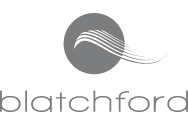What individuals or organizations would generate information about the use, design, distribution and/or manufacture of prosthetic limbs?
1. South African Orthopaedic Journal - The aim of the South African Orthopaedic Journal is to serve as a platform for the publication of original scientific research and the advancement of knowledge in the field of orthopaedic surgery and related sub–disciplines in South Africa. While the emphasis is placed on the South African perspective and relevance to orthopaedic surgeons in a developing world setting they strive to maintain an international audience. Furthermore, the SAOJ aims to disseminate orthopaedic knowledge in order to keep orthopaedic surgeons and related healthcare providers abreast of the local and international developments in orthopaedics.
2. SciELO - The Scientific Electronic Library Online (SciELO) SA is South Africa’s premier open-access (free to access and free to publish) searchable full-text journal database in service of the South African research community. The database covers a selected collection of peer-reviewed South African scholarly journals and forms an integral part of the SciELO Brazil project. SciELO SA is managed by the Academy of Science of South Africa (ASSAf), funded by the South African Department of Science and Technology and endorsed by the South African Department of Higher Education and Training (DHET).
3. Blatchford - Blatchford is a global, patient-focused rehabilitation company. They design and manufacture the award-winning Endolite range of lower limb prosthetic products as well as provide clinical rehabilitation services to the NHS and private patients in the UK and in key locations globally.
4. Roland Toogood Prosthetist & Orthotist is a manufacturer & supplier of prosthetic appliances based in East London, South Africa. Roland Toogood started his private practice in October 2001. He has been manufacturing Prosthetic and Orthopedic appliances since 1989. Roland believes in offering service of the highest quality utilizing the latest technology in the orthopedic and prosthetic fields.
Roland studied at Tshwane University of Technology (previously known as the Pretoria Technikon) and qualified with a National Diploma in 1991 after which he was employed by Frere Orthopedic services. In 2001 he resigned as Chief Medical Orthotist & Prosthetist at the Frere Hospital and established his own private practice in Southernwood, East London and continues to expand his qualifications in his chosen field of Prosthetics and Orthotics. In 2011, Roland completed his Bacculaures Technologiae (B-Tech) degree in Medical Orthotics and Prosthetics at the Tshwane University of Technology. He is a member of SAOPA (South African Orthotics & Prosthetics association) and ISPO (international association of Prosthetics and Orthotics)
5. Artificial Limbs Cape Town - José de Barros Viana qualified as an Orthotist Prosthetist in 1989 and obtained his B-Tech degree in 2004. He specializes in creating state of the art aesthetic Silicone Prostheses and epitheses. He is a member of: • ISPO (the International Society for Prosthetics and Orthotics) • SAOPA (the South African Orthotics and Prosthetics Association) • HPCSA (Health Professions Counsel of South Africa)
Lesson Plan
Duration: 30 Minutes
Discipline: General
Number of
attendees: 10 students and 1 Librarian
Venue: UWC
Training room, Level
Materials: Computers
with internet, Pen, Paper, Data Projector, Instructor's PC, Flip Chart and Marker
Description
of the session and learning outcomes (5 minutes)
This Session will introduce students to the UWC Library
Catalogue/SmartSearch. Students will learn to use appropriate search strategies
to locate items in SmartSearch based on their specific information need.
Objectives:
Students can access the library catalogue/SmartSearch for locating books,
journal articles or DVDs for locating scholarly information.
Finding SmartSearch (2-3 minutes)
Locate SmartSearch on the UWC
Library website
Searching Basics (10 min.)
Number of
attendees: 10 students and 1 Librarian
Venue: UWC Training room, Level
Materials: Computers with internet, Pen, Paper, Data Projector, Instructor's PC, Flip Chart and Marker
Venue: UWC Training room, Level
Materials: Computers with internet, Pen, Paper, Data Projector, Instructor's PC, Flip Chart and Marker
Task
|
Knowledge
Practices
|
Dispositions
|
1. Identify keywords from your topic
|
a) Determine the initial scope of the task required to meet their
information needs
b) Utilize divergent (e.g., brainstorming) and convergent (e.g., selecting
the best source) thinking when searching;
|
Exhibit mental flexibility and creativity
|
2. Think of synonyms and alternative words
|
a) Understand how information systems are organized in order to access
relevant information
b) Use different types of searching language (e.g., controlled vocabulary,
keywords, natural language) appropriately;
|
Understand that first attempts at searching do not
always produce adequate results
|
3. Combine your search string with AND, OR, or NOT
|
a) Match information needs and search strategies to appropriate search tools;
|
Recognize the value of browsing and other
serendipitous methods of information gathering
|
Understanding SmartSearch Records (5-10
minutes)
Task
|
Knowledge Practices/Outcomes
|
Dispositions
|
Refine
your search to journal articles only and cite using Cite/Export tab:
|
Design
and refine needs and search strategies as necessary, based on search results;
|
Persist
in the face of search challenges, and know the different steps to be taken to
complete the information search task
|
Select
one or more item types, such as printed books, eBooks, streaming media, or
DVDs, in keeping with the research topic
|
Manage searching processes and results
effectively.
|
Realize
that information sources vary greatly in content and format and have varying
relevance and value, depending on the needs and nature of the search
|
. CSIR Pretoria South Africa.ormLesson Planation about th5. e use, design, distribution a5. CSIR Pretoria South Africa.nd/or manufacture of prosthetic limbs? What individuals or organisations would generate information about the use, design, distribution and/or manufacture of prosthetic limbs? What individuals or organisations would generate information about the use, design, distribution and/or manufacture of prosthetic limbs?





Comments
Post a Comment